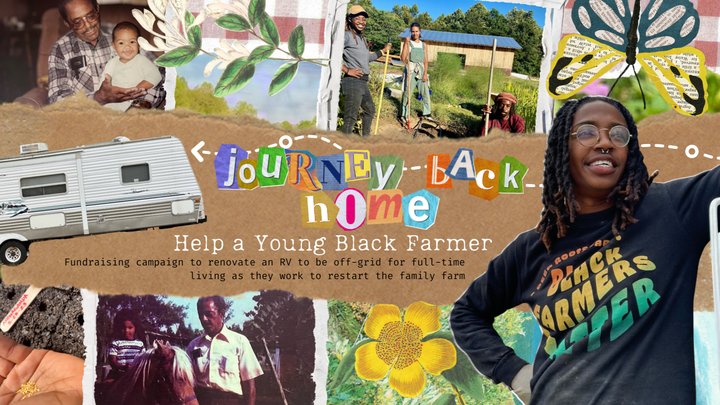
Journey Back Home: Help A Young Black Farmer
Donation protected
My name is Nia Kiara Cole, and I am a Black, queer, beginning farmer. Originally from Atlanta, GA, I have been a part of the DMV community since 2011, when I moved to the District to attend Howard University to study film. After graduating, however, I continuously struggled to find the most meaningful way to use the skills and passion I had garnered to service my often disenfranchised community. And with the farmland in High Point, NC that my father and ancestors were raised on, being passed down to me in 2028; there's been a growing need for me to find a way to connect the dots.
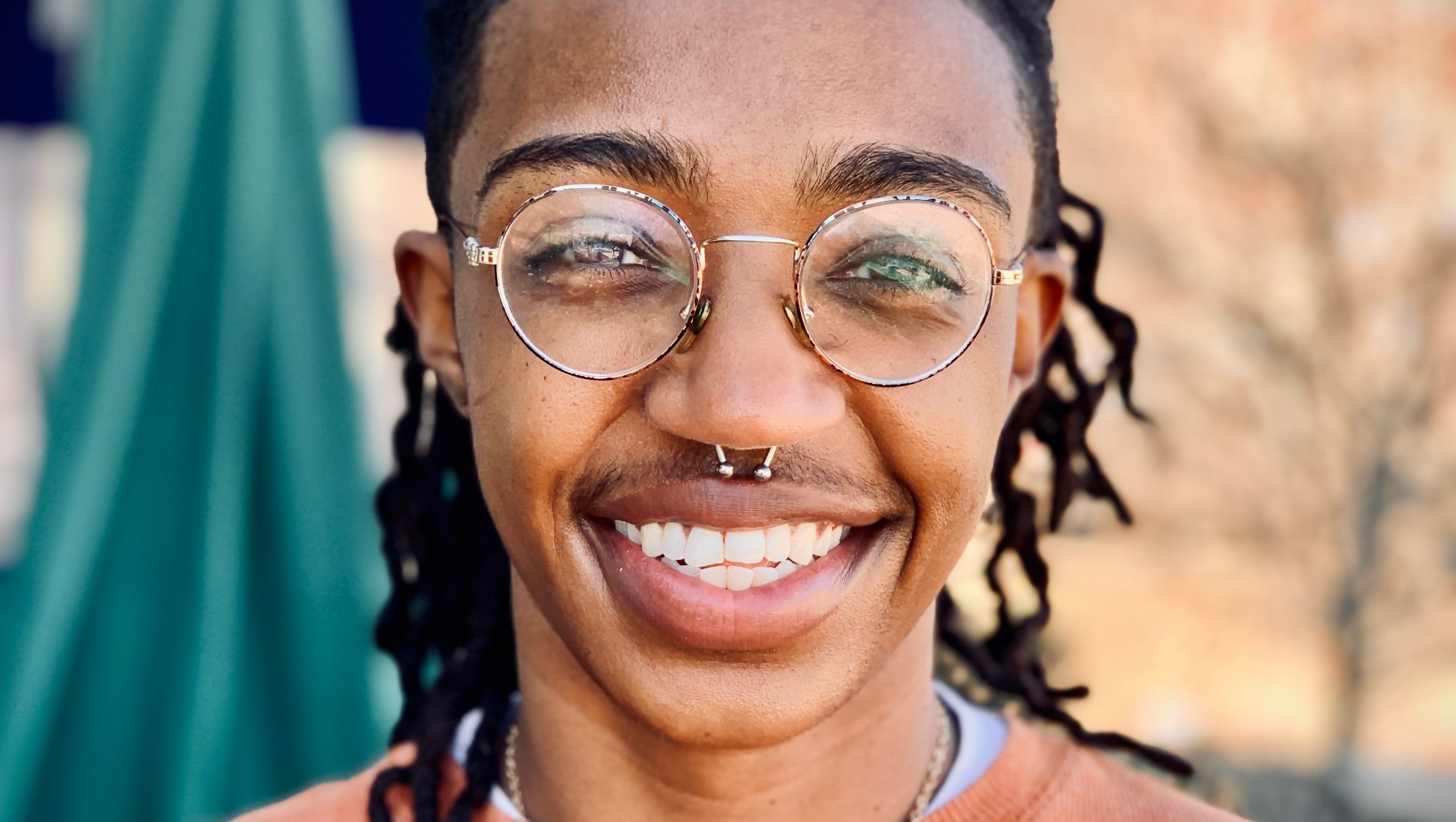
Gardening throughout the pandemic while working for the DC Health Department, was the first connection that gave me the clarity of purpose I needed to find that path. And so at the beginning of 2022, I embarked on a journey to reconnect with my ancestors and reclaim my family's legacy as stewards of the land, that uplift our community through healing, nourishment, collective action, and creativity. I quit my job and began farming full-time on multiple farms throughout the DMV; including Common Good City Farm, Deep Roots Farm, Three Part Harmony, and Juniper's Garden. I still have so much left to learn, but I am committed in both my work and aspirations to doing the hard work now, to create a path of ease for those in the future; and embarking on this RV project is the next step along that path. When fully operational, this RV will be an oasis, a home, a gathering spot, and a space to learn, grow, and thrive.
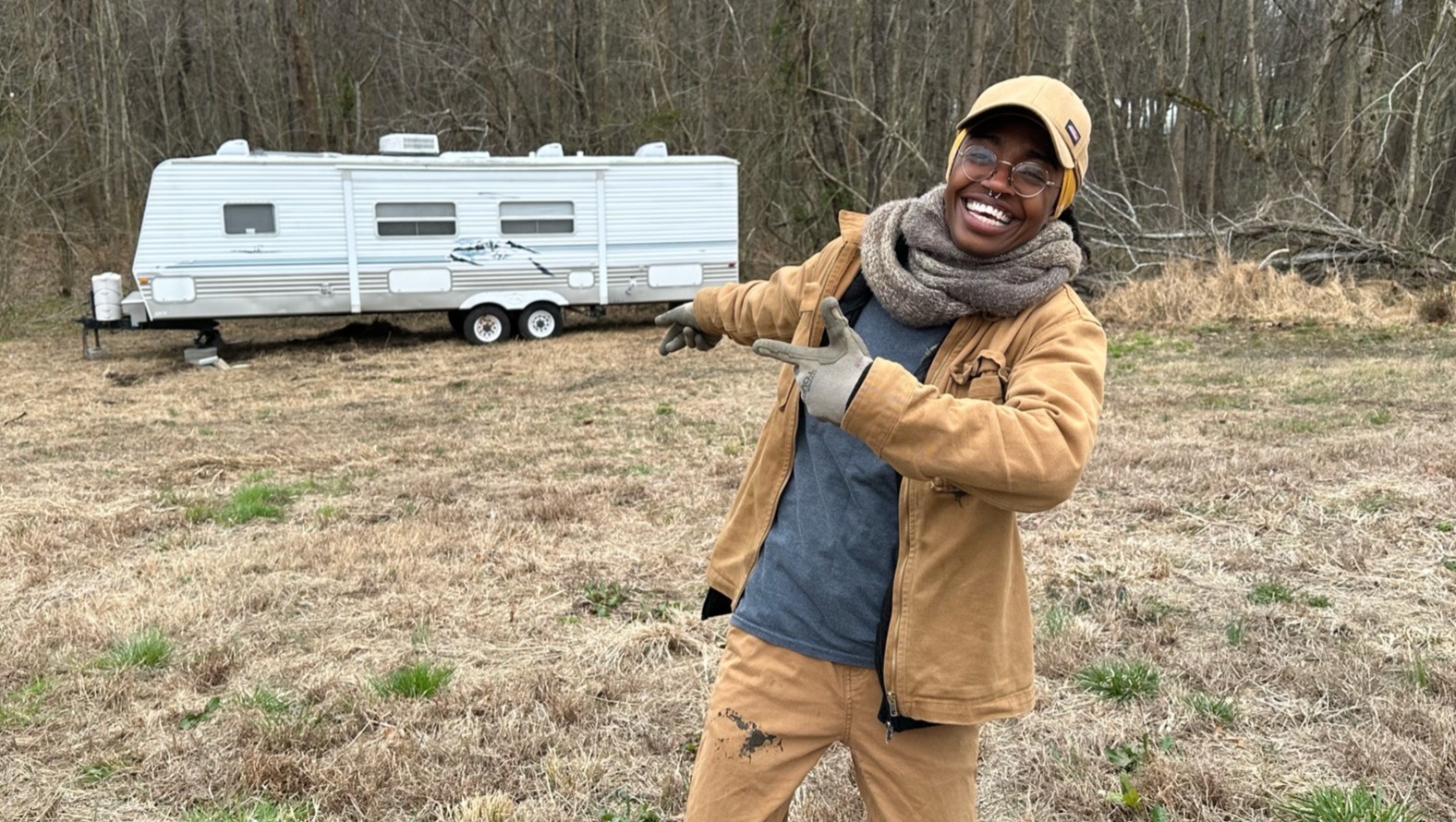
Project Goals and Intentions:
1. To transform the RV (or camper) into a house; as I will be living in the camper as my primary residence beginning May 2023, through the completion of the renovations. Doing so will allow me the ability to work on restoring the family farmland without displacing the family that currently resides on the property and provides revenue needed for taxes and general upkeep.
2. To make the RV fully "off-grid", meaning there will be no reliance on public utilities (ex. solar power). Doing so will lessen the overall carbon footprint of the camper, maximize efficiency, and increase accessibility by eradicating monthly upkeep/service bills.
3. The lifetime of this RV is to be a conduit of connection and exploration. I intend on utilizing the camper to:
- House A&T BIPOC students through a partnership with the University to provide a summer internship program on the farm
- Generate income through agro-tourism for folks (prioritizing BIPOC individuals) who may come for retreats, restoration, refuge, workshops, and an opportunity to connect with nature and be in community.
4. To share and teach this process as an alternative path to equity building and "home ownership", that is more accessible to black and brown folks.
The overarching intention is for this project to be the impetus for inspiring the radical reimagining of what "affordable and accessible" housing can look like; while being the launching point for rebuilding my family's farm as a regenerative space that both heals the land and nourishes the community in mind, body, and spirit.
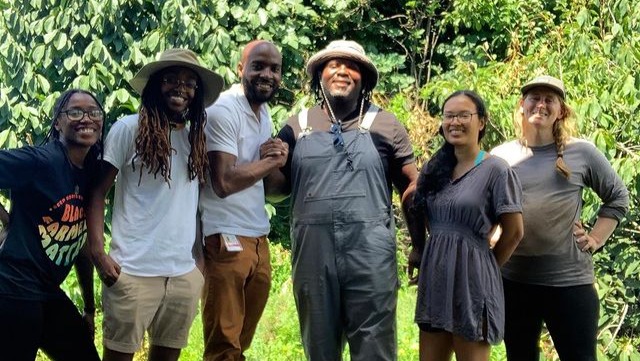
Why Support This Project?
1. Homeownership is not as accessible for communities of color, especially those that are low-income and work within the service industry
- Nationally, "between 2005 and 2021, the average rate of Black homebuyers was 7%, while that of white homebuyers was 81%"
- "In 2005, 63% of DMV-area homebuyers were white while 17% were Black. In 2021, 51% were white, while 20% were Black ..." - Axios
2. Barriers to land access historically and currently disproportionately affect black and brown farmers
- As cited in Leah Penniman's "Farming While Black", as recently as 2018, less than 1% of farms in the U.S. were black-owned
- Most land in "urban" and "suburban" areas throughout the US is either privately owned or inaccessible (due to financial or legal barriers)
3. Black and brown communities suffer from food insecurity at much higher rates throughout the US
- For example, in the 2020 "Still Minding the Grocery Gap" report, findings showed DC's whitest (81.5%) and richest ($122,680 median income in 2017) Ward 3 had 16 full-service grocery stores while DC's blackest (92%) and poorest ($31,954 median income in 2017) Ward 8 only had 1.
- Additionally, the majority of black and brown communities are not only food deserts, having no/limited access (physically and/or financially) to fresh and healthy foods; but also food swamps, having most food options from fast food restaurants and convenience stores.
4. The effects of global warming due to carbon emissions, deforestation, and conventional farming most directly and significantly impact people of color across the entire world.
- Indigenous peoples and communities are currently losing their ancestral homes due to rising sea levels
- Large industrial or "conventional" farms - especially livestock - are most often located next to black and brown neighborhoods, causing shorter life expectancy and rampant diseases due to the high levels of pollutants in the air, water, and soil
By embarking on a project like this, it is my hope is that I can inspire and help other BIPOC folks to engage with sustainable practices, explore alternative ways of living, and restore black and brown holistic wellness through land-based healing. This project will be truly successful when it is capable of existing for the betterment and benefit of the whole community.
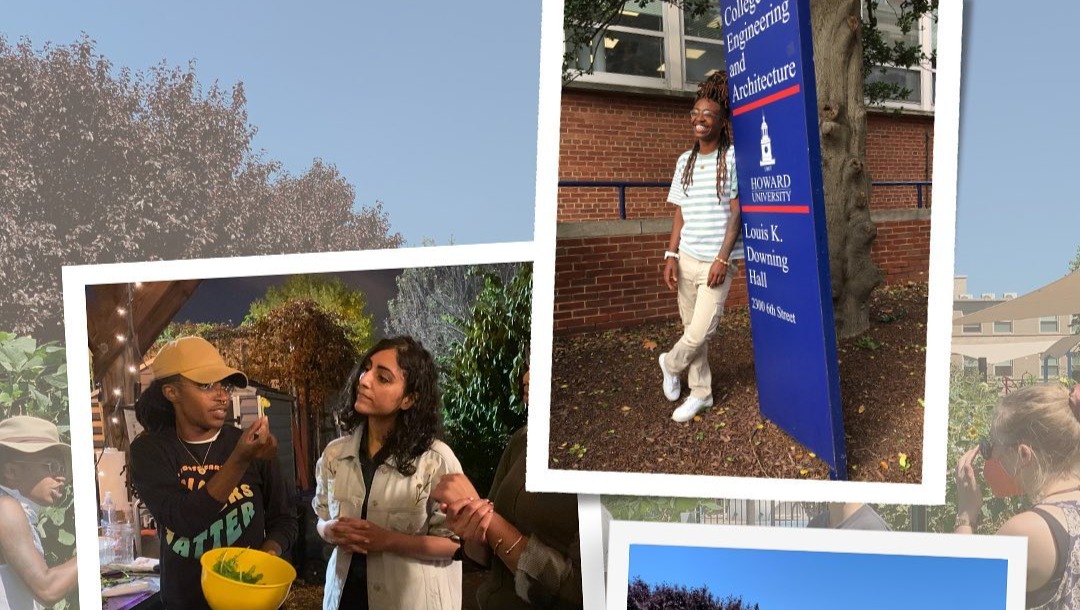
Budget: $30,000
1. $4,000 - Solar Panel Installation
2. $700 - Emergency Generator
3. $600 - Water Filtration System
- Whole house filter (rust, sediment, etc.)
- Undersink filter (chemical contaminants, etc.)
- Portable Water Softener
4. $600 - Tankless Water Heater
5. $2,000 - Refridgerator Replacement
6. $3,000 - Mini-split (HVAC system)
- Furnace removal
7. $1,500 - Compost Toilet
8. $8,000 - Roof Lift
- Removal of roof and appliances
- Lift and seal
- Rewiring of electrical systems
9. $5,000 - Floor Reinforcement and Repair
- Custom skirt + insulation
10. $4,000 - Cosmetic Repairs and Finishes
This is an exciting opportunity to support the growing generation of black and brown land stewards that are invested in healing our communities through projects that center food, forests, and family. As a good friend of mine once said "Alternative models of living and creating collectively are part of what will make our humanity possible—for us and for future generations."
Organizer
Nia Kiara Cole
Organizer
Washington D.C., DC